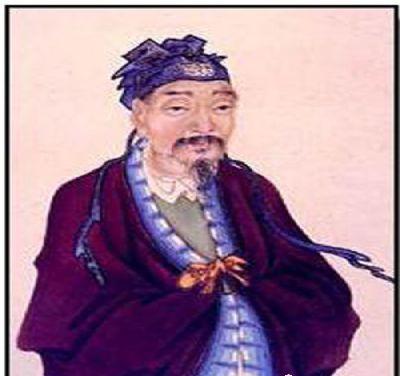When mentioning Emperor Wu of Han, it is inevitable that the "Tui En Order" is indispensable; when it comes to the "Tui En Order", it has to be said that the proposer of this wonderful plan is the minister of Emperor Wu of Han.
The main father was born in Linzi, Shandong, and was a native of the State of Qi. He came from a poor background and had studied the art of cross-cutting in his early years. However, at that time, the art of vertical and horizontal was not popular, and later he changed his studies to "Yi", "Spring and Autumn" and the Words of the Hundred Families. In the State of Qi, he was ostracized by Confucianism, so he traveled north to the princely kingdoms of Yan, Zhao, and Zhongshan, but he was not treated with courtesy. Finally, in 134 BC, the lord father came to Chang'an.

The main father was first a guest under the door of the great general Wei Qing, who thought that this person was a malleable talent, so he repeatedly recommended him to Emperor Wu of Han, but he was not valued by Emperor Wu of Han. There was no way to recommend it, so the main father made a desperate bet and directly wrote to Emperor Wu of Han. The Lord Father said nine things in the book, eight of which were related to the laws of the time. Emperor Wu of Han read his letter and felt that the main father's insight was very unique, and summoned him on the same day, along with two other people.
Through the conversation with these people, Emperor Wudi of Han felt that they were all rare talents. I can't help but sigh: "The public and the wait are all safe, and it is too late to see each other." "When even for the three people to appoint officials. The lord father was worshipped as Lang Zhong, and soon after he was promoted to Gurudwara, and soon after he was promoted to Zhonglang, and later to Zhongdafu. In just one year, the unknown father was promoted four times.
The main father did not live up to the expectations of Emperor Wu of Han, and soon he put forward a proposal that was admired by countless historians in later generations: allow the kings to divide their fiefs among their sons and establish smaller princely states. Without bloodshed, this "Tui En Order" allowed Emperor Wu of Han to easily achieve the achievement of "strengthening centralized power" and smoothly cut off the wings of the princes. The advantage of the Tui En Order is that the desire of the descendants of the princely states and the need to strengthen the centralization of power are considered in combination, and the best combination point acceptable to both sides is found.
In addition, the main father also proposed that Maoling had just been built, and all the rich and powerful people in the country would be moved to Maoling. In this way, the Beijing Division can be enriched, and the second is that those who are slippery can be eliminated. Emperor Wu of Han accepted both of these suggestions, and the emperor moved Haojie from all over the country and the rich households with more than three million assets to the vicinity of Maoling.
However, as Emperor Wu of Han became more and more trustworthy, the main father became more and more "inflated". Long before he joined the army, he didn't get along well with others, otherwise he wouldn't be unwelcome everywhere he went. After gaining power, the main father became arrogant, because he wanted to marry his daughter to the King of Qi, he searched around for the guilt of Liu Cichang, the king of Qi, and reported it to the imperial court, causing the frightened King of Qi to commit suicide. King Zhao, who had also offended his father and had committed illegal acts in the feudal country, was also terrified, and decided to act first, causing people to report that the lord father had accepted bribes from the princes, and asked Emperor Wu of Han to severely punish him. Emperor Wu of Han was furious when he received the report and immediately ordered the arrest of his father. The Lord's Father was eventually exterminated.